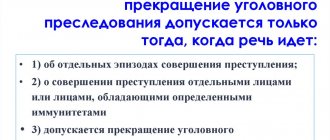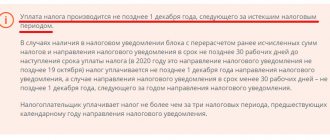Lawyer Konstantin Dobikov 12/16/2017
A pre-investigation check is a set of procedural measures carried out by law enforcement agencies in order to verify the presence or absence of a crime.
The basis for verification is information about a possible crime being prepared, being committed or committed.
The activities carried out during the inspection are regulated by several laws: the Federal Law “On Operational-Investigative Activities”, the Federal Law “On the Police”, the Federal Law “On the Federal Security Service”, as well as the norms of the Criminal Procedure Code of the Russian Federation.
Duration of pre-investigation measures
The inquiry officer, the inquiry body, the investigator, the head of the investigative body are obliged to check the report of a crime and make a decision on it within: • up to 3 days from the date of receipt of the report. In the future, the period for conducting a pre-investigation check (3 days) may be extended: • up to 10 days - by the head of the investigative body, the head of the inquiry body, at the motivated request of the investigator or interrogating officer, respectively; The period may be extended • up to 30 days - by the head of the investigative body at the request of the investigator or by the prosecutor at the request of the investigator.
Thus, the inspection period should not be more than 30 days.
Unfortunately, in practice this rule is violated; decisions made based on the results can be repeatedly canceled, which increases the duration (term) of its implementation.
The legislative framework that is not clearly formulated on this issue allows the authorities to extend the total period of the pre-investigation check indefinitely. Exceptions to the rules are provided when collecting materials on tax crimes.
The procedure for checking a crime report and initiating a criminal case
Lawyer Antonov A.P.
In cases of private prosecution, the victim applies for protection of his rights and legitimate interests directly to the court with a statement to bring a specific person to criminal liability under a specific article of the Criminal Code of the Russian Federation and in a court hearing proves the fact of committing a crime and the guilt of this person.
In the Resolution of the Constitutional Court of the Russian Federation dated June 27, 2005 N 7-P “In the case of verifying the constitutionality of the provisions of parts two and four of Article 20, part six of Article 144, paragraph 3 of part one of Article 145, part three of Article 318, parts one and two of Article 319 The Code of Criminal Procedure of the Russian Federation in connection with requests from the Legislative Assembly of the Republic of Karelia and the Oktyabrsky District Court of the city of Murmansk” states that when establishing these rules, the legislator proceeded from the fact that those specified in Part 2 of Art. 20 of the Code of Criminal Procedure of the Russian Federation, crimes are among those that do not pose a significant public danger and the disclosure of which, as a general rule, does not cause difficulties, and therefore the victim himself can carry out, as a private prosecution, criminal prosecution of the person who committed the corresponding crime against him - apply for the protection of their rights and legitimate interests directly to the court and prove both the fact of committing a crime and the guilt of a specific person, bypassing the mandatory procedural stages of pre-trial proceedings in other situations (in cases of private-public and public prosecution).
In this case, the procedural stages of pre-trial proceedings in a criminal case are excluded.
Conducting an inquiry or preliminary investigation in criminal cases of private-public and public accusations in the forms established by the Code of Criminal Procedure of the Russian Federation is mandatory, since in accordance with Part 1 of Art. 21 of the Code of Criminal Procedure of the Russian Federation, criminal prosecution on behalf of the state in criminal cases of public and private-public accusations is carried out by the prosecutor, as well as the investigator and the interrogating officer.
In cases of private prosecution, the obligation of criminal prosecution remains in cases provided for in Part 4 of Art. 20 of the Code of Criminal Procedure of the Russian Federation, regardless of the will of the victim.
Verification of a report of a crime and the initiation of a criminal case represent the initial, independent stage of the criminal process, during which the presence or absence of the very basis for initiating a case is established - sufficient data indicating the signs of a crime. At this stage, circumstances precluding the initiation of a case are determined, a legal qualification of the crime is given, measures are taken to prevent or suppress the crime, consolidate its traces, ensure subsequent investigation and consideration of the case in accordance with the rules of jurisdiction and cognizance (Resolution of the Constitutional Court of the Russian Federation of January 14, 2000 No. 1 -P) (Determination of the Constitutional Court of the Russian Federation dated March 12, 2019 N 578-O “On the complaint of citizen Oleg Borisovich Suslov about the violation of his constitutional rights by parts one, six and seven of Article 148 of the Code of Criminal Procedure of the Russian Federation”).
A statement about a crime or a confession can be made orally, in which case they are entered into the protocol, or in writing. The applicant is warned of criminal liability for knowingly false denunciation in accordance with Art. 306 of the Criminal Procedure Code of the Russian Federation, about which a note is made in the protocol, which is certified by the signature of the applicant (Article 141 of the Criminal Procedure Code of the Russian Federation), he is given a document confirming the acceptance of a report of a crime, indicating information about the person who received it, as well as the date and time of its acceptance.
The procedure for considering a report of a crime is established in Art. 144 Code of Criminal Procedure of the Russian Federation.
The inquiry officer, the inquiry body, the investigator, the head of the investigative body are obliged to accept, verify a message about any crime committed or being prepared and, within the competence established by the Code of Criminal Procedure of the Russian Federation, make a decision on it no later than 3 days from the date of receipt of the specified message. At the motivated request of the investigator or interrogating officer, this period may be extended to 10 days. If it is necessary to carry out documentary checks, audits, forensic examinations, studies of documents, objects, corpses, as well as conduct operational search activities, the head of the investigative body at the request of the investigator, and the prosecutor at the request of the investigator, has the right to extend this period to 30 days with mandatory indication of specific, the actual circumstances that served as the basis for such an extension.
When checking a message, explanations and samples are selected for comparative research, documents and objects are requested and confiscated, forensic examinations are ordered, the scene of the incident, documents, objects, corpses are inspected, examinations are carried out, documentary checks, audits, examinations of documents, objects, corpses are carried out, and Specialists participate in these actions and operational search activities are carried out.
According to a report of a crime disseminated in the media, the inspection is carried out on behalf of the prosecutor by the inquiry body, as well as on behalf of the head of the investigative body by the investigator. The editorial board and the editor-in-chief of the relevant mass media are obliged to hand over the available documents and materials confirming the report of a crime, as well as information about the person who provided the specified information, except in cases where this person has set a condition to keep the source of information secret (Part. 2 Article 144 Code of Criminal Procedure of the Russian Federation).
In cases of crimes under Art. Art. 198 - 199.1, 199.3, 199.4 of the Criminal Code of the Russian Federation, the criminal procedure legislation establishes the features of criminal proceedings regarding the procedure for considering a report of a crime.
The current legislation, providing for various procedural mechanisms for identifying tax offenses, violations of the legislation on taxes and fees containing elements of a crime, does not give grounds to consider the corresponding procedural rules to be contrary to the constitutional requirements of fairness, certainty and necessity (Determination of the Constitutional Court of the Russian Federation dated May 29, 2019 N 1243-O “On the refusal to accept for consideration the complaint of citizen Vadim Mikhailovich Shvartsberg about the violation of his constitutional rights by part nine of Article 144 of the Code of Criminal Procedure of the Russian Federation and Article 199 of the Criminal Code of the Russian Federation”).
When a message about such crimes is received from the inquiry body, the investigator, in the absence of grounds for refusing to initiate a criminal case, no later than three days from the moment the message is received, sends it to a higher tax authority (under Articles 198 - 199.1 of the Criminal Code of the Russian Federation) in relation to the tax authority. the body with which the taxpayer is registered for tax purposes (tax agent, fee payer, insurance premium payer), or the territorial body of the insurer (under Articles 199.3, 199.4 of the Criminal Code of the Russian Federation) with which the policyholder - an individual or policyholder - is registered -organizations that are obliged to pay insurance contributions for compulsory social insurance against industrial accidents and occupational diseases to a state extra-budgetary fund, a copy of such a message with the relevant documents attached and a preliminary calculation of the estimated amount of arrears for taxes, fees and (or) insurance contributions (h 7 Article 144 Code of Criminal Procedure of the Russian Federation).
The tax authority or the territorial body of the insurer, no later than 15 days from the date of receipt of such materials, sends to the investigator a conclusion on violation of the legislation of the Russian Federation on taxes and fees and (or) the legislation of the Russian Federation on compulsory social insurance against industrial accidents and occupational diseases and on the correctness of the preliminary calculating the amount of the expected arrears of taxes, fees and (or) insurance premiums in the event that the circumstances specified in the report of the crime were the subject of investigation during a previously appointed tax audit or verification of the correctness of calculation, timeliness and completeness of payment (transfer) of insurance premiums, based on the results of which a decision of the tax authority or territorial body of the insurer was made that has entered into force, as well as information about an appeal or suspension of execution of such a decision, informs the investigator that in relation to the taxpayer (tax agent, fee payer, insurance premium payer) or the insurer is being carried out tax audit or verification of the correctness of calculation, timeliness and completeness of payment (transfer) of insurance premiums, based on the results of which the decision has not yet been made or has not entered into legal force, or informs the investigator about the absence of information about a violation of the law (Part. 8 tbsp. 144 Code of Criminal Procedure of the Russian Federation).
After receiving the said conclusion, but no later than 30 days from the date of receipt of the report of the crime, based on the results of consideration of this conclusion by the investigator, a procedural decision must be made (Part 9 of Article 144 of the Code of Criminal Procedure of the Russian Federation).
A criminal case is initiated only if there are the above reasons and grounds.
The circumstances of the committed act must not contain the information specified in Art. 24 of the Code of Criminal Procedure of the Russian Federation, since then a decision is made not to initiate a criminal case, but to refuse it.
The decision to initiate a criminal case is formalized in the form of a resolution, a copy of which is sent to the prosecutor.
The applicant is informed of the decision. At the same time, the applicant is explained his right to appeal this decision and the procedure for such an appeal (Part 2 of Article 145 of the Code of Criminal Procedure of the Russian Federation).
An effective mechanism for restoring a violated right is the provisions of Art. Art. 124, 125 of the Code of Criminal Procedure of the Russian Federation, according to which a refusal to accept a report of a crime, a decision to refuse to initiate a criminal case or to initiate one can be appealed to the prosecutor or to the court.
Sincerely, lawyer Anatoly Antonov, managing partner of the law firm Antonov and Partners.
Still have questions for your lawyer? Ask them right now here, or call us by phone in Moscow +7 (499) 288-34-32 or in Samara +7 (846) 212-99-71 (24 hours a day), or come to our office for a consultation (by pre-registration)!
Assistance from a lawyer during pre-investigation checks
Persons participating in procedural actions should remember that at the stage before the initiation of a criminal case, the law and the Constitution guarantee them the right to defense.
In accordance with the law, representation and protection of persons whose interests are affected during the pre-investigation investigation is carried out by a lawyer.
Timely seeking legal assistance and forming the correct position at the pre-investigation stage can eliminate further criminal prosecution.






